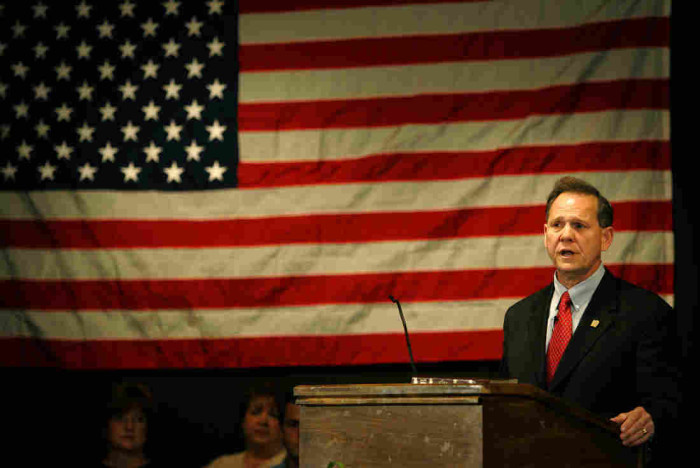Background The U.S. Constitution does not include a definition of marriage and, as such, it has been defined by the people and predominantly at the state level. Over the past few years, the federal court system has rapidly eroded the right of states to define marriage in a way that, as Justice Scalia put it, had been "unquestioned in our society for most of its existence...in virtually all societies for virtually all of human history." In 2013, the U.S. Supreme Court forever changed the landscape of the same-sex marriage debate in two decisions: U.S. v. Windsor and Hollingsworth v. Perry. If you have decided to marry your same-sex partner despite rulings, take a look at wedding venues Southwest Virginia to really make it a day to remember.
In Windsor, the Court considered the constitutionality of the federal Defense of Marriage Act (DOMA) which included a traditional definition of marriage. The Court struck down the provision, ruling that defining marriage should be left to the states, yet did not directly address the constitutionality of state laws that ban same-sex marriage. In his dissent, Justice Scalia rightly predicted that “[h]ow easy it is, indeed how inevitable, to reach the same conclusion with regard to state laws denying same-sex couples marital status… As far as this Court is concerned, no one should be fooled; it is just a matter of listening and waiting for the other shoe.”1
In Hollingsworth, the Court was to rule on the constitutionality of California’s amendment defining marriage as between one man and one woman, but the case was dismissed on standing grounds.2 Without the Court’s clear affirmation of state marriage amendments in either case, federal courts began to be flooded with litigation over the issue.
Recognizing a split amongst the Federal Circuit Courts of Appeals, the U.S. Supreme Court announced in January 2015 that it would take up the issue directly through four cases that challenge the Sixth Circuit’s move to uphold bans on samesex marriage in Kentucky, Michigan, Ohio, and Tennessee. Specifically, the Court will rule on two seminal issues: (1) whether a state can define marriage as existing only between one man and one woman; and (2) whether it is a denial of Due Process under the 14th Amendment for a state to refuse to recognize out-of-state, legal same-sex marriages.3 The Court’s ruling on these issues will ultimately dictate the direction of marriage and domestic relation laws across the country for generations to come.
Recent Supreme Court trends indicate that this case likely be decided by a 5-4 vote either way. It is just as likely that Justice Kennedy will provide the deciding vote for the Court. It was initially believed that this would not be an open and shut case since Justice Kennedy invalidated the DOMA law by declaring that the federal government could not supersede New York’s law allowing same-sex marriage because “domestic relations” is “an area that has long been regarded as a virtually exclusive province of the States.”4 Still, the U.S. Supreme Court’s posture in Alabama’s recent legal battle over the issue seems to signal that the Court has already made up its mind.
Recent Developments in Alabama
In 1998, the Alabama Legislature passed a statute, entitled “the Marriage Protection Act,” barring marriage licenses from being issued to same-sex couples and prohibiting the recognition of same-sex marriages. As the issue of same-sex marriage grew more heated, in 2006, Alabamians voted overwhelmingly to formalize the definition of marriage in the Alabama Constitution with the “Sanctity of Marriage Amendment” (No. 774).5
On Friday, January 23rd , U.S. District Judge Callie Granade issued a ruling declaring Alabama’s marriage amendment unconstitutional on grounds that it violates the due process and equal protection clauses of the 14th Amendment to the U.S. Constitution. The case before Judge Granade involved a same-sex couple (two women) from Mobile who traveled to California to get married and sought to obtain formal recognition of their marriage in Alabama so as to be declared legal parents of the child that they have been raising since 2005.
Judge Granade placed a two-week hold on her decision to allow the Alabama Attorney General (AAG) time to seek a stay and appeak to the 11th Circuit. On February 3rd, the 11th Circuit denied the request for a stay. That same day, the AAG filed an emergency request for stay with the U.S. Supreme Court.6 On February 9th, the day Judge Granade’s temporary hold was to be lifted, the U.S. Supreme Court denied the request. Justices Thomas and Scalia dissented from the denial, noting the Court’s “increasingly cavalier attitude toward the States” and opining that [they] would have shown the people of Alabama the respect they deserved and preserved the status quo” while the Court considers the constitutional questions involved.7 The denial of the stay has thus been interpreted as a precursor of what to expect from the Court in its decision this summer. In the meantime, the 11th Circuit released a memo stating that it would not take any further action on same-sex marriage cases until the U.S. Supreme Court decides the issue later this year.8
On February 3rd and again on February 8th, the Chief Justice of the Alabama Supreme Court advised probate judges that they were not obligated to issue same-sex marriage licenses and that to do so would be in violation of Alabama law. When Judge Granade’s ruling took effect on February 9th, the majority of Alabama probate judges either shutdown all issuance of marriage licenses or refused to issue them to same-sex couples. In response to the refusal of one Mobile probate judge to open the marriage license division of his court, the plaintiffs filed a motion with Judge Granade requesting that the probate judge be held in contempt. Somewhat surprisingly, Judge Granade noted that the probate judge was not a party to the case and therefore was not ordered to do anything. This effectively settled that no probate judges were compelled to follow the original order.
Having had Judge Granade limit the impact of her ruling, the plaintiffs filed a new lawsuit against the Mobile Probate Judge as well as the Chief Justice. The suit also requested an emergency order to compel the probate judge to issue same-sex marriage licenses. Judge Granade granted the request to have Judge Davis added as a defendant and scheduled a hearing on the matter for Thursday, February 12. The now-involved ACLU intends to use this case to force all probate judges in Alabama to issue same-sex licenses, else they be sued in separate cases in their own jurisdictions.
Following the February 12th hearing, Judge Granade issued an injunction enjoining Judge Davis of Mobile from “refusing to issue marriage licenses to same-sex couples.” It is unclear whether or not the order means to compel him to reopen the licensing division. What is clear, is that this order does not apply to probate judges statewide.
While the situation is fluid, Alabama law clearly states that “marriage licenses may be issued”9 by probate judges; thus, state law does not compel judges to issue these licenses at all. Those probate judges who have refused to issue marriage licenses to both traditional and same-sex couples should not have to comply with a ruling based in equal protection grounds as no discrimination can be found.
Policy Implications
The U.S. Supreme Court has not struck down any state laws limiting marriage to one man and one woman, yet. Only through an expansive and liberal interpretation of the Constitution could a Supreme Court Justice determine that it is within the federal judiciary’s purview to instruct the states this matter. Such a command would be, in the words of Justice Scalia, “jaw-dropping.” Even Justice Kennedy once acknowledged that the federal government defers to state law policy on domestic relations because the states are the sole authority over these matters and “the Constitution delegated no authority” to the federal government over the subject of marriage.10 Unfortunately, it seems, the majority of the Court has already succumbed to the pressures of politicization and public opinion, rather than yielding to restraint and the narrowly defined role of the Court.
The outcome of this case could result in a monumental disruption of the delicate balance of federalism. The Court should acknowledge the limits of its power, rather than, as Scalia warned, see "what it can get away with." The unraveling of traditional marriage that has been in place for centuries might be inevitable, but it should not be imposed upon states by the high Court acting beyond its authority to appease a majority believed to be "ready for gay marriage."11
1 United States v. Windsor, 133 S. Ct. 2675, 2710 (2013) (Scalia, A., dissenting).
2 Hollingsworth v. Perry, 133 S.Ct. 2652, (2013).
3 Bourke v. Beshear, No. 14-574, 2015 WL 213651 (U.S. Jan. 16, 2015);
http://www.supremecourt.gov/orders/courtorders/011615zr_f2q3.pdf
4 United States v. Windsor, 133 S. Ct. 2675 (2013); citing Sosna v. Iowa, 419 U.S.
393, 404 (1975).
5 Al. Const. amend. 774.
6 Bryan Lyman, Alabama AG seeks stay of same-sex marriage ruling, Montgomery
Advertiser, (Jan 24, 2015); http://www.montgomeryadvertiser.com/story/southunionstreet/2015/01/24/ala-agseeks-stay-of-same-sex-marriage-ruling/22268833/
7 Strange v. Searcy, 2015 WL 505563 (2015).
8 Warrenn Richey, Eleventh Circuit says it will wait for Supreme Court on same sex
marriage, The Christian Science Monitor (Feb. 4, 2015);
http://www.csmonitor.com/USA/Justice/2015/0204/Eleventh-Circuit-says-it-will-wait-forSupreme-Court-on-same-sex-marriage
9 Ala. Code Sec. 30-1-9.
10 United States v. Windsor, 133 S. Ct. 2675, 2691 (2013).
Having had Judge Granade limit the impact of her
ruling, the plaintiffs filed a new lawsuit against the
Mobile Probate Judge as well as the Chief Justice.
11 Greg Stohr, Ruth Bader Ginsburg Thinks Americans Are Ready for Gay Marriage,
BLOOMBERG NEWS, Feb. 12, 2015.
Courtesy of the Alabama Policy Institute





